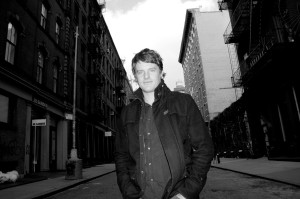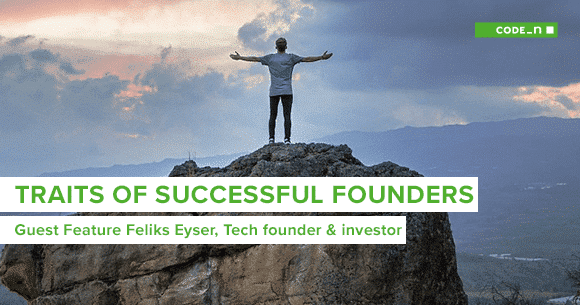Trend scouting in the Big Apple. What does it take to be a successful startup in New York?
Florian has been entrepreneur and trend consultant for more than 15 years now. Right after his studies he emigrated to the US and founded CScout (today Mandalah) in New York.
Janina Benz: It’s always challenging to found a company, especially right after graduating. Why did you choose the US? Didn’t that include a lot more difficulties than founding in your home country Germany?
Florian Peter: I studied business in London and didn’t want to just go back to Germany and work in a consultancy or new media agency. My last internship was in NYC at Bertelsmann Music Group where I had fallen in love with the City. Therefore I looked into my options to start in the States. It turns out that the US is a very entrepreneurial country. It supports startups and young entrepreneurs, making it easy to found a company without a lot of red-tape and expenses. For instance, as a founder you can write off pretty much any expense you have, including personal, without having to jump through hoops, like you do in Germany where every travel receipt is like filing a PHD thesis. The US understands that it has to support small businesses that foster innovation.
JB: People say about New York: “If you make it there, you can make it anywhere.” Is the city in fact such an important milestone in a career? What does it need to be successful in NY?
Florian Peter: New York is a great place to start and build a company, you have three things going for you: networking opportunities with the best minds and likeminded entrepreneurs, financing via angel and venture capital and global client access since client’s either have an office in the City or will visit several times a year. On the other hand, this also makes for some of the toughest competition. You always have plenty of competitors close by who are constantly improving and tweaking their business models. Overall, this results in an incredible dynamism which can make or break a company and also it’s founders. Personally I learned that one has to work hard to find the work-life balance to be able to handle this intensity over time. Otherwise the City will suck you in and spit you out the other end.
JB: Being a trend scout enabled you to constantly watch and observe the latest developments within the economy. How did this affect you as an entrepreneur and your business?
Florian Peter: It’s a great vantage point, to see all these innovative business models up close and to get to meet inspiring entrepreneurs and companies. On the other hand it also can be disillusioning since I get to see a lot of startups, trends and business models that do not succeed and which never make the mainstream. It’s a good reality check and allows us to be balanced in our analysis not jumping on every latest trend or hype cycle.
JB: After twelve years you decided to merge with a bigger agency. Why did you decide to merge and give up your independence and why did you choose Mandalah as a partner?
Florian Peter: Being an entrepreneur you always evolve and re-engineer your own business model. My first business was a trend scouting agency. When trends became ubiquitous on numerous global blogs we moved on to add consulting services to make sense of these trends for our clients. Evolving this trend consulting business we realised that trends are being used to drive innovation processes. Therefore, we wanted to expand our offering into innovation consulting, but soon realised that we need a strong partner. Having previously worked with Mandalah on global trend and innovation mandates, we realised that they were the right partner with lot’s of experience, a multidisciplinary team and a solid methodology.
JB: After 20 years being your own boss, you are now one of the senior partners within Mandalah. How difficult was the change for you?
Florian Peter: The change from being my own boss to becoming a senior partner was actually not difficult at all, it was a blessing. In hindsight, I believe I stayed independent too long and didn’t have a sparing-partner to bounce ideas off of or develop strategy together. As a Mandalah partner I am able to tap into 4 other partners at any moment which all contribute different sets of experiences and qualities. That’s a great benefit. Nevertheless, there was some getting used to the new model and we’re all actively building processes and cultures to foster this management exchange between partners as well as amongst all employees.
JB: Mandalah has offices all around the world.What does it take to setup a good team?
Florian Peter: Amongst the partners we once discussed our optimal business size. We have 5 locations (NYC, BER, SAO, MEX, TYO) and think that an optimal size will be 20 people in each office, that’s a total of 100 consultants. That would allow us to work on several global mandates across offices. In terms of setting up a good team we feel that a multidisciplinary mix is best for the type of consulting work we offer. We employ MBA’s as well as artists, technologists, journalists and educators, that each bring a different perspective and cultural sensibility to our projects. Another simple rule we actually wrote into our internal culture guide is that we want to have fun, to celebrate the work we do and enable our team to lead from within.
CODE_n in the Social Web:






Comments